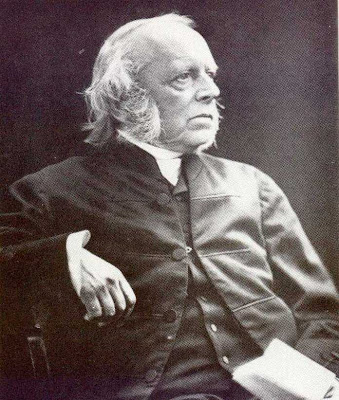All-Hallows-Even, All Saints' Day, or more commonly Halloween. Not just an awesome slasher horror movie series, but also the little holiday that could.
Halloween has its roots in Celtic, Christian, Roman and pagan traditions, dating back to the days before fake blood and Freddy Krueger masks. The Celts traditionally held a festival of Samhain, Old Irish for "summer's end", around the pivotal turning point of the seasons. They believed that at this time the link between our world and the next was on its thinnest, and would dress up as spirits, demons and the like in an effort to 'blend in' with the boogiemen, much like looking like a zombie makes you less likely to attract other zombies (Zombie Apocalypse Survival Tip #13).
Fast-forward to today and I think you'll find Halloween is a tradition whose true purpose and historical meanings have been lost to commercialism and free candy. For better or worse, people don't believe in the boogieman anymore, and you'll be hard-pressed to find mention of cleansing rituals, divination, or any of the paganistic traditions of the past. But the 'spirit' of Halloween lives on, and the 'holiday' is bigger now than ever.
The various flavours of Christianity each seem to have their own views on the festival. Anglicans tend to promote the traditions of 'All-Saint's Day', some Protestants use the day to remember the Protestant Reformation. Both Protestants and Catholics have used the day to organise events within their churches where parents and children can have fun and celebrate the festival from a Christian perspective. Other Christians reject the holiday, feeling it trivialises or even celebrates the occult.
Being brought up in a Christian household, my parents treated Halloween with a strange but steady mixture of ignorance and reverence. Although they were aware there probably wasn't anything 'Satanic' about making jack-o-lanterns in my junior school, they still requested I be excused from participating. I remember being a little bummed about this at the time, which was weird as I was an arrogant little upstart ('was'??!) who would have relished the thought of my teachers having the extra work of finding me something else to do that day. The teachers were actually pretty good about it all; I think for my parents it was less about a fear of me being infected with this evil pagan ritual of carving a face into a vegetable, but more about 'setting a good example', so that my teachers and other kids might ask questions about why they held the traditions they did, call it my parents' little 'social revolution'.
Halloween night itself for me growing up was a mixed bag (nyak nyak nyak). Some years my parents would open the door to trick-or-treaters, often presenting them with little religious 'tracts' explaining why they believed Halloween wasn't to be taken lightly. Other years they'd just apologise politely and say they didn't have any sweets to give out because they 'didn't believe in it' (which is probably harder for a 7-year-old trick-or-treater to understand than a pamphlet of doctrines...). As I grew up they'd just stop answering the door on that one night of the year, even going so far as to turn off all the lights in the house and make my sister and I hang out in the kitchen at the back. Which we loved, in our own little 'shh, pretend we're hiding from the Nazis' headgames..... Yeah, we were funny kids.............
I don't resent my parents' tactics for dealing with the event, but I do sometimes question their motives and wonder if I'll be the same if I have kids. And I don't think I'm alone - Christians and Christian parents the world over seem as undecided on what to do regarding their kids and 'Halloween' as they do regarding their kids and 'Father Christmas'.
On the one hand, you don't want your kids discounting all ideas of evil, the spirit world, demons, the Devil and the like as nonsense. You certainly don't want them to be 'celebrating' any of that stuff, not that many parents of faith or no faith would. On the other hand, you can be forgiven for falling into the 'oh it's just a bit of harmless fun' mindset. In many cases, I don't think it's the worst thing in the world for kids to become involved in a tradition that has become basically devoid of any and all true symbolism and meaning, but then it may have knock-on effects that are as undesirable, like cheapening the 'good' traditions of celebrations like Christmas and Easter, or not standing out from the crowd as salt & light in a world of pepper & darkness.
I'm really not sure where I'll stand as a parent. I really can't see myself encouraging my kids to dress up as my favourite Resident Evil characters, as much as I may want to, but I think I'll have a hard time saying no if they ask to go 'trick-or-treating' with their friends..... Is it possible that the world has forgotten all of the darker elements of Halloween and just wants kids to have fun? And if so, is that really a good thing, or is it just another indicator of how society is becoming more materialistic, rejecting the possibility of there being anything more to life than what they can touch, or see, or buy?




